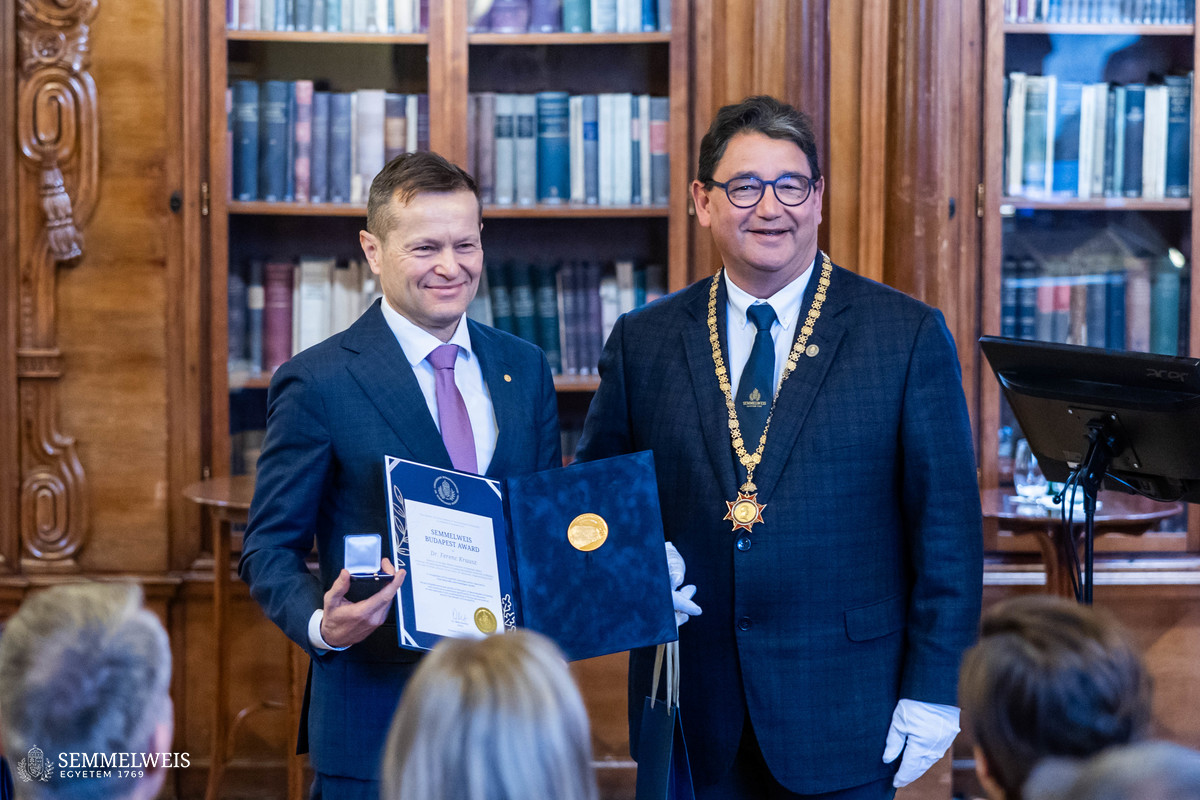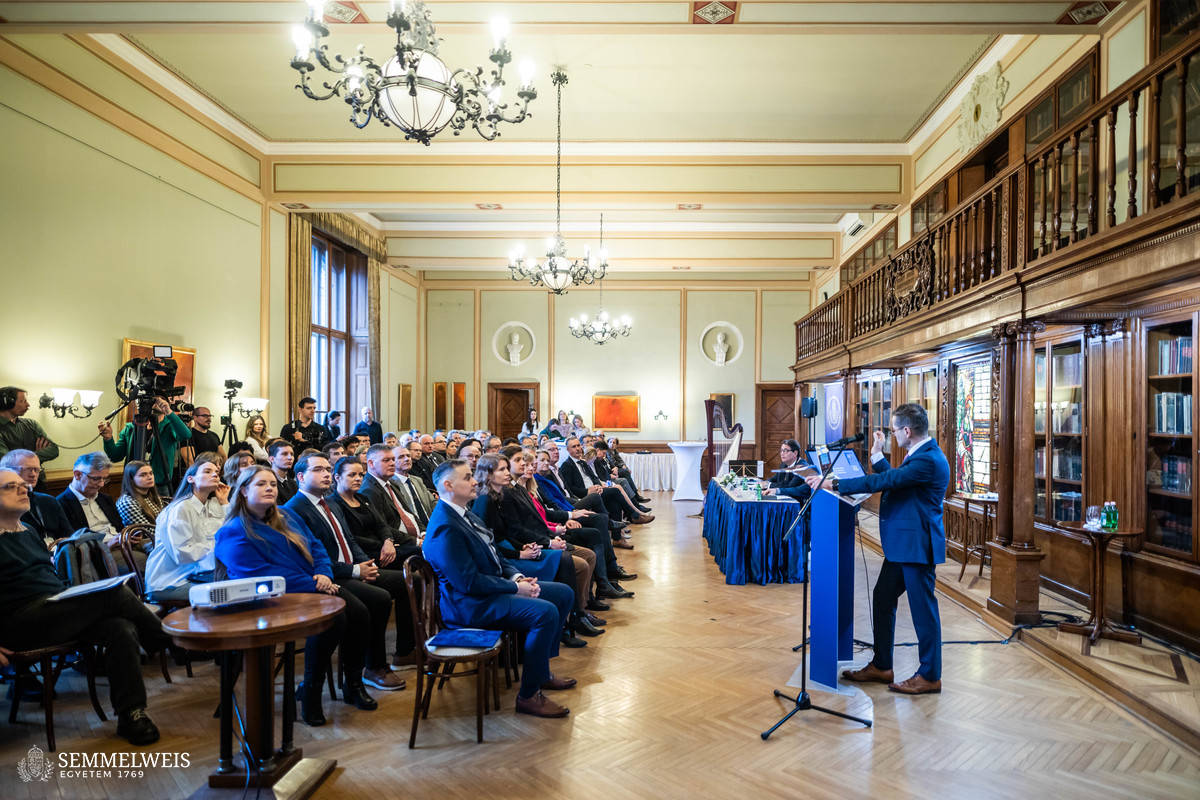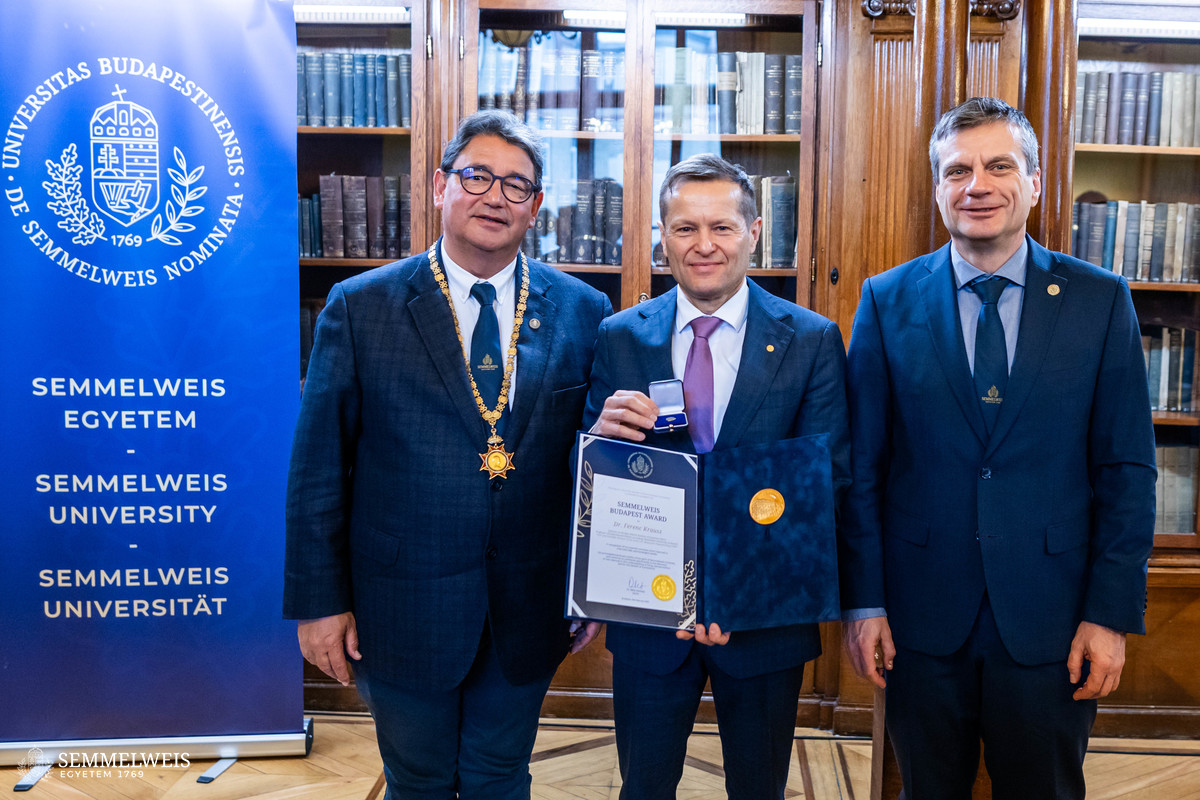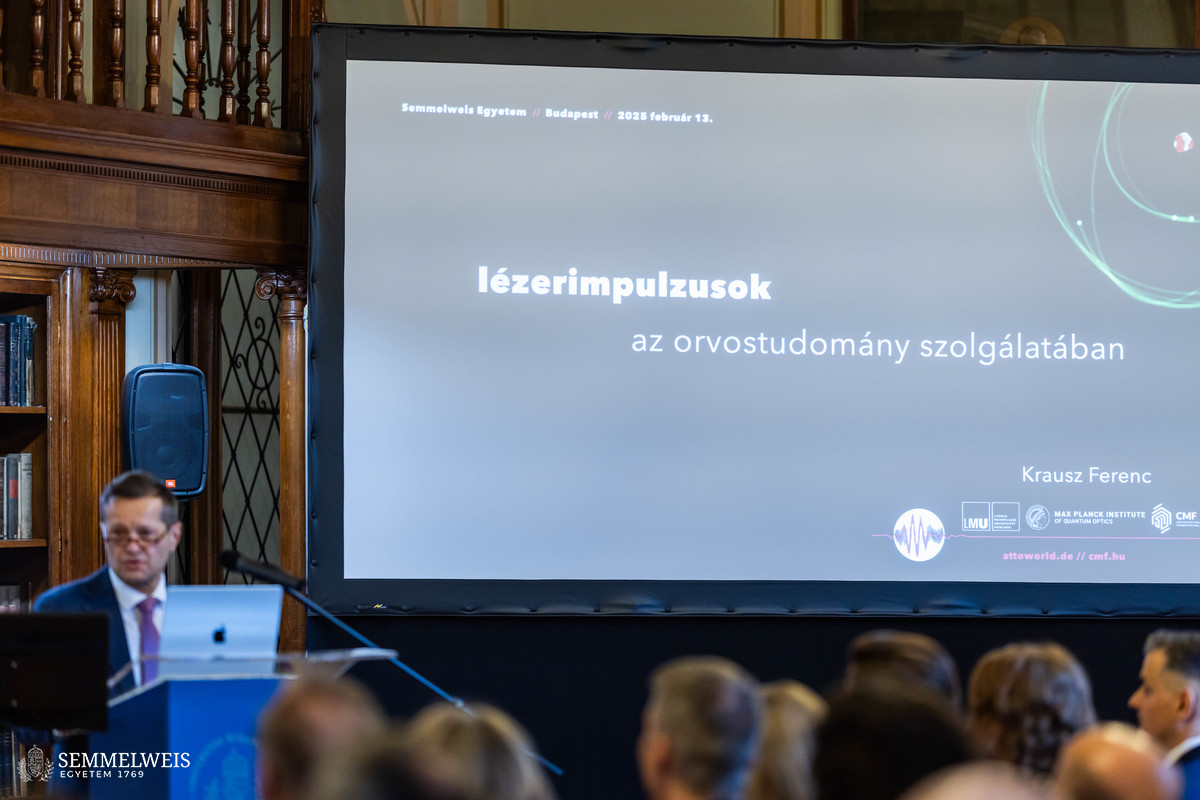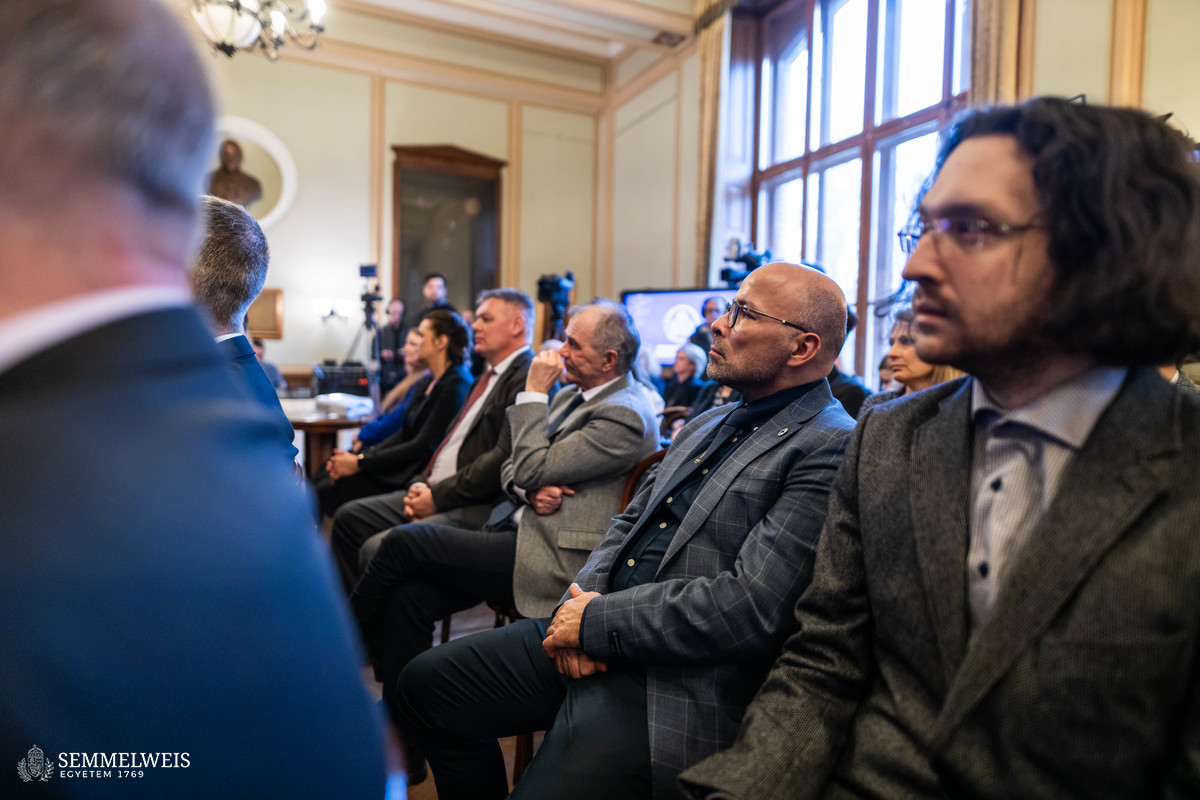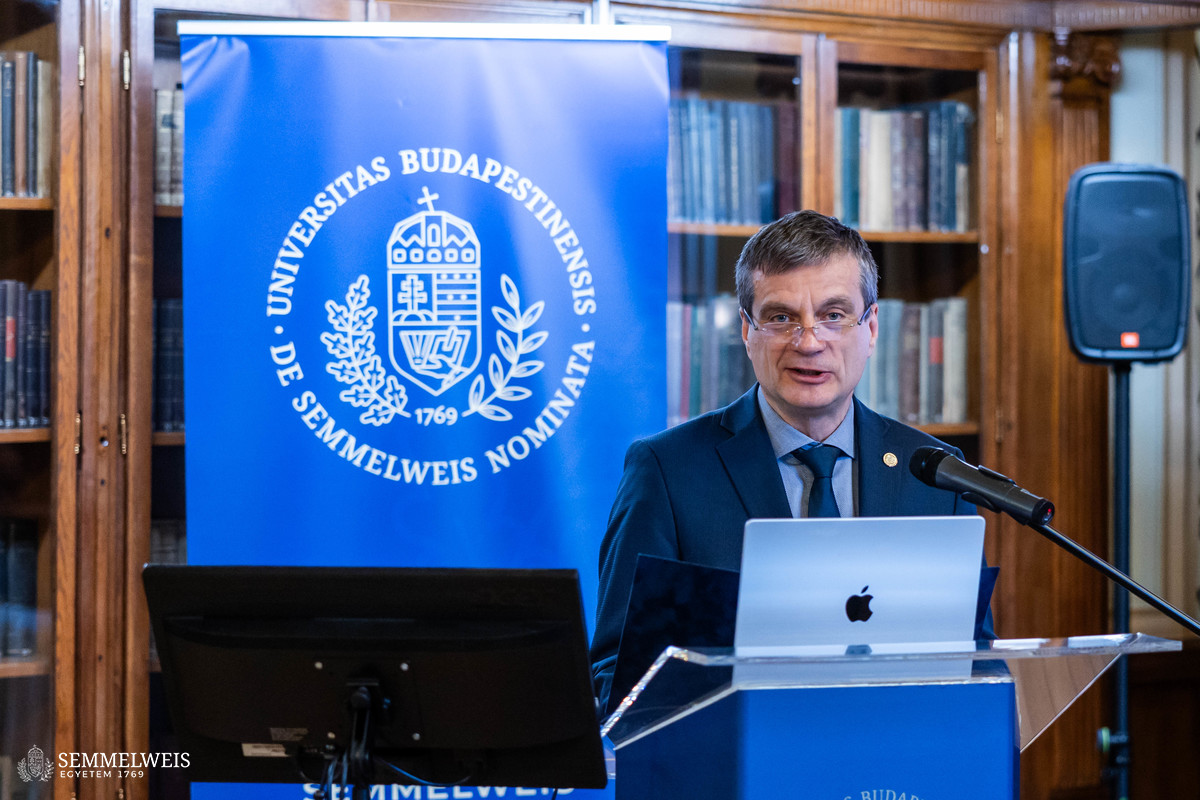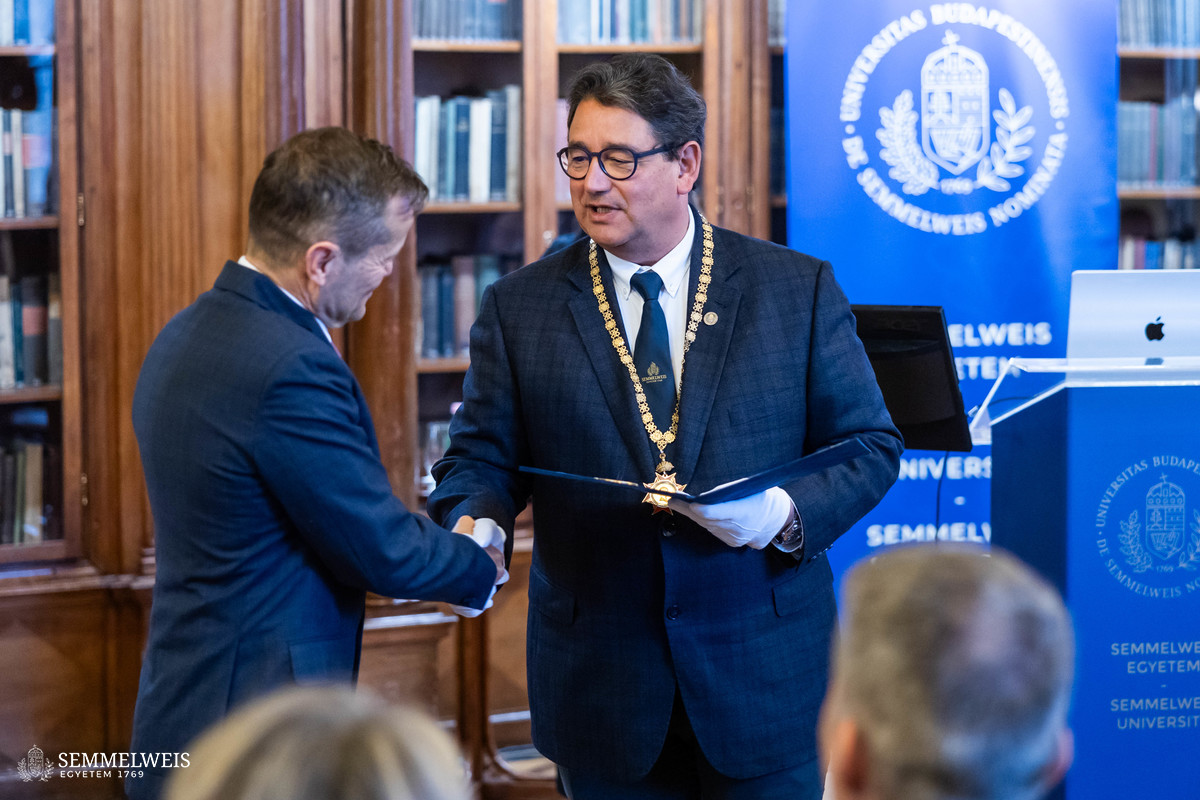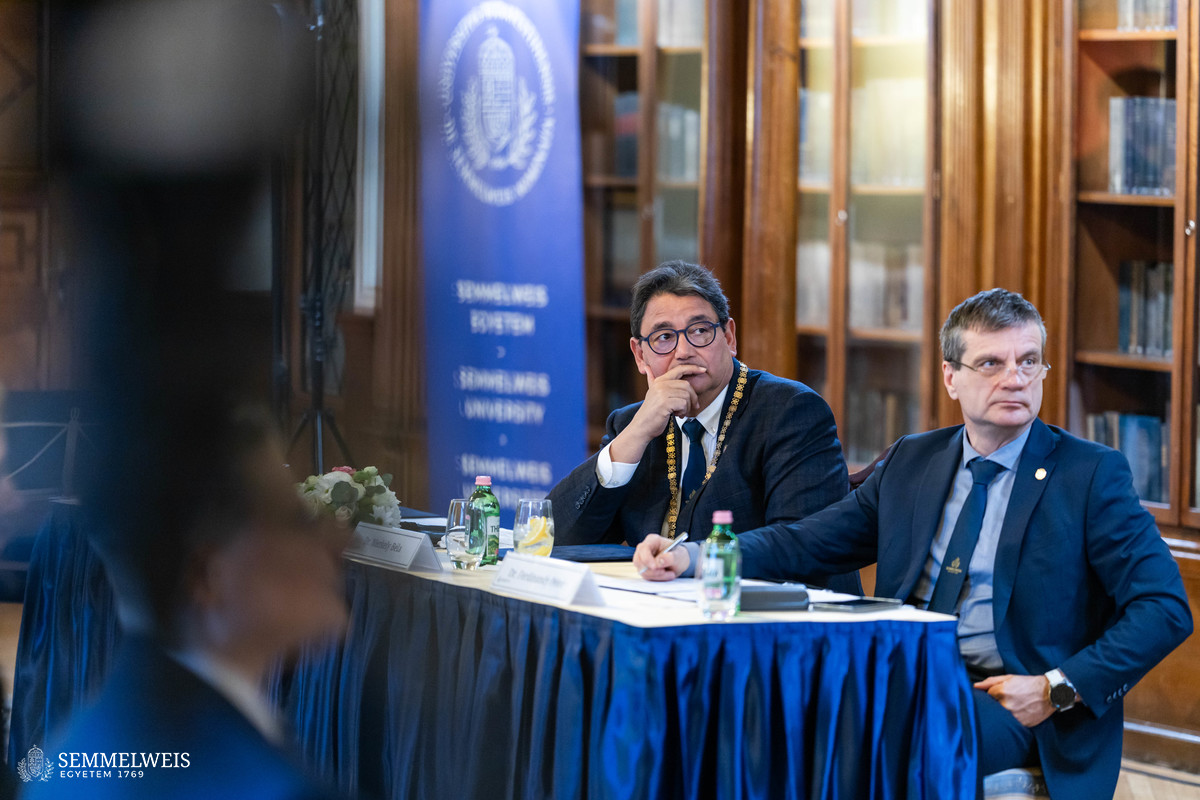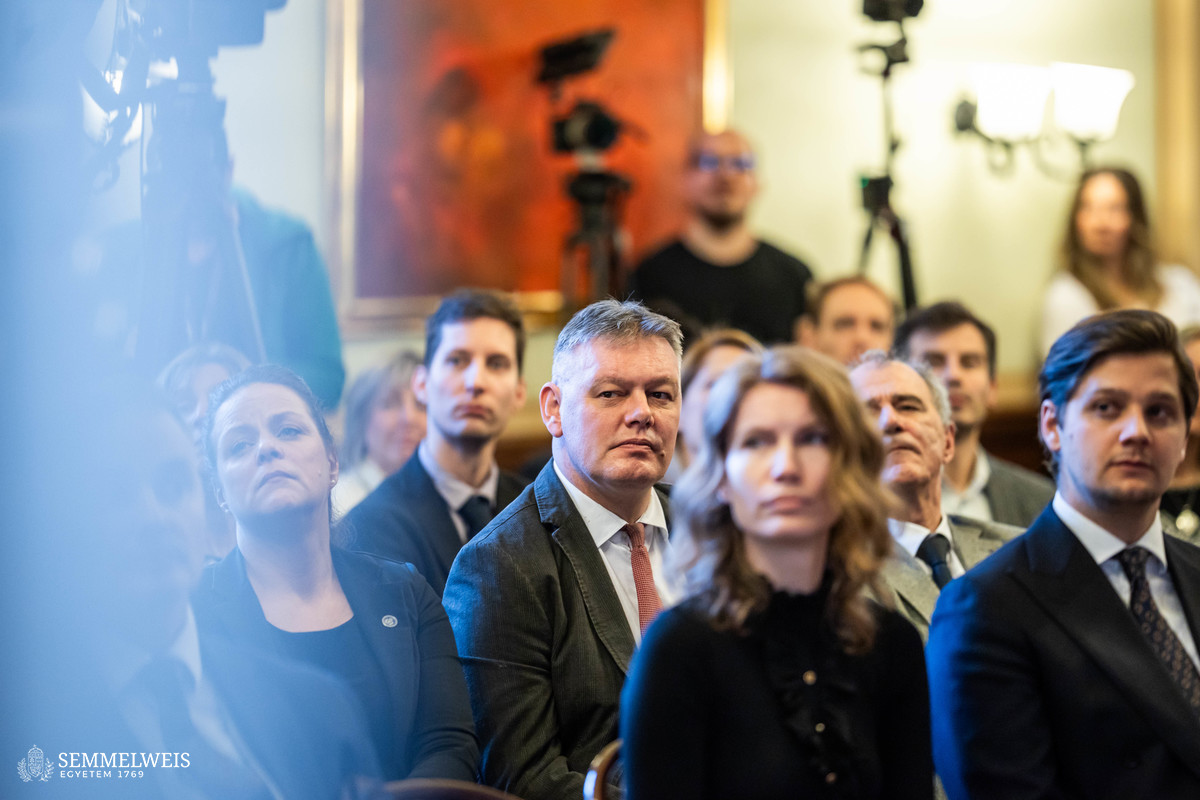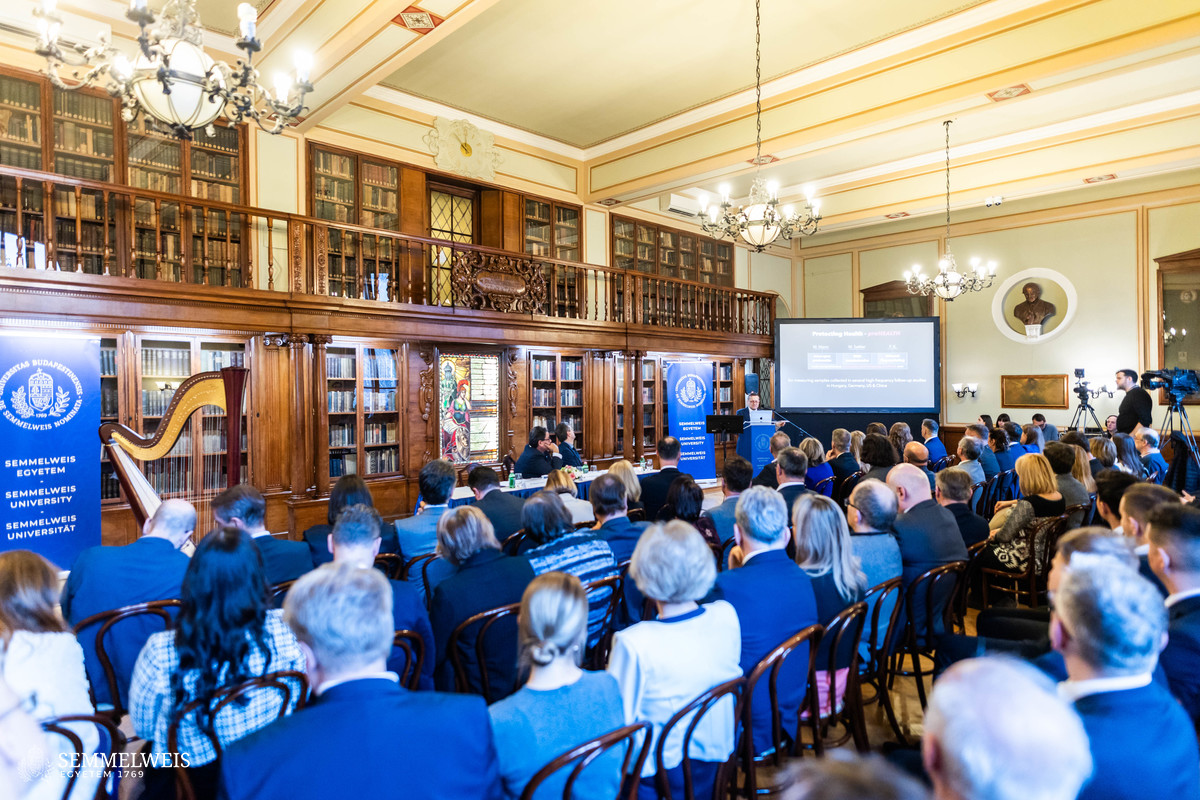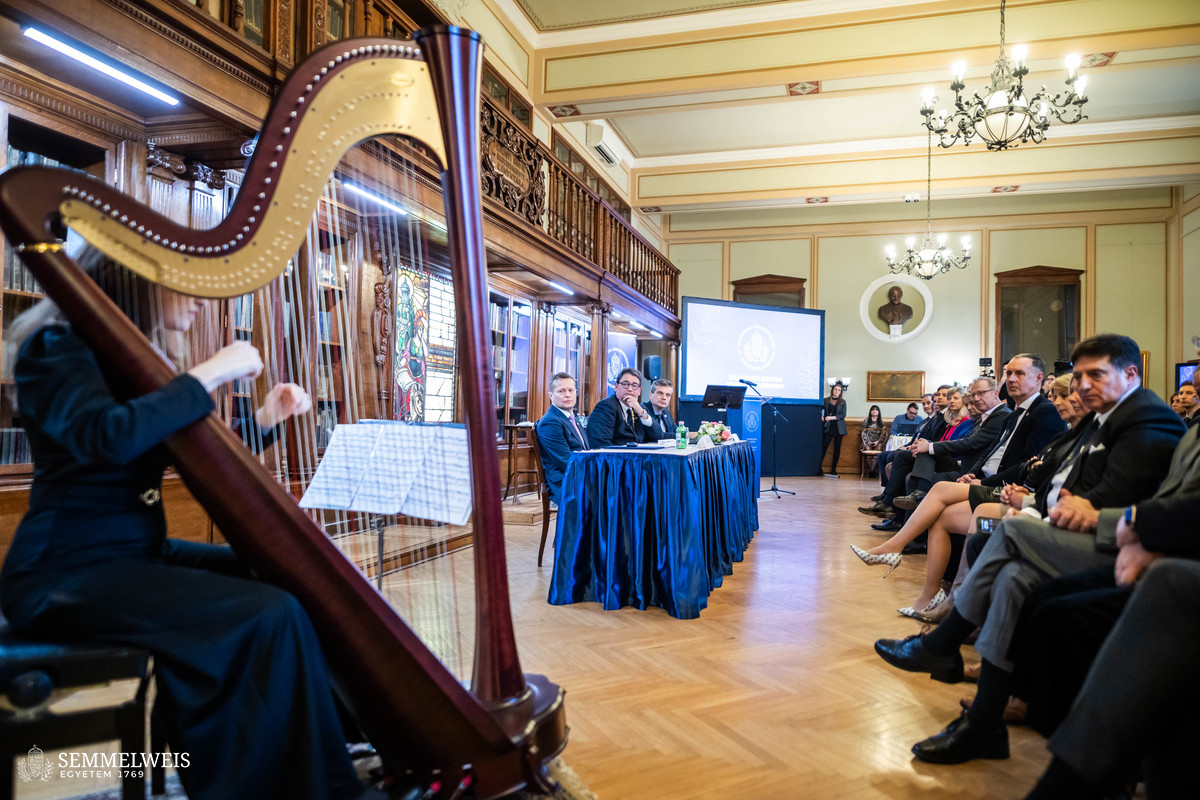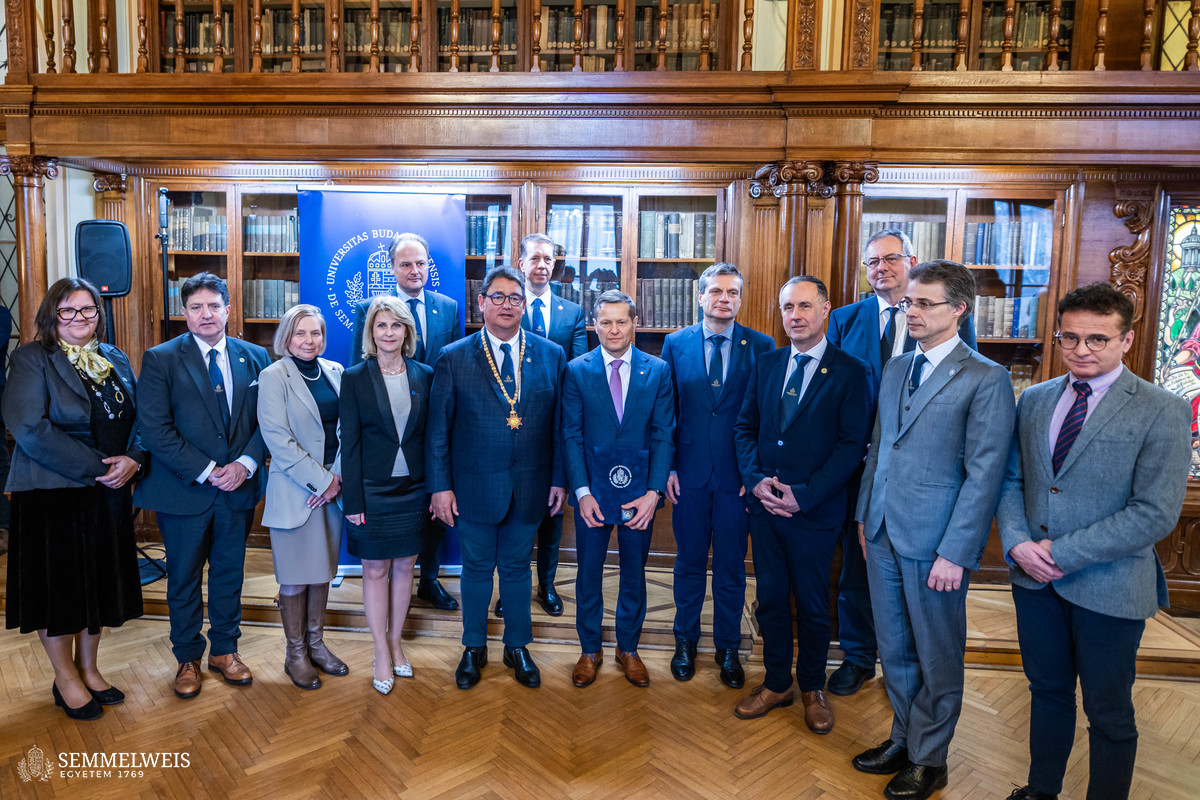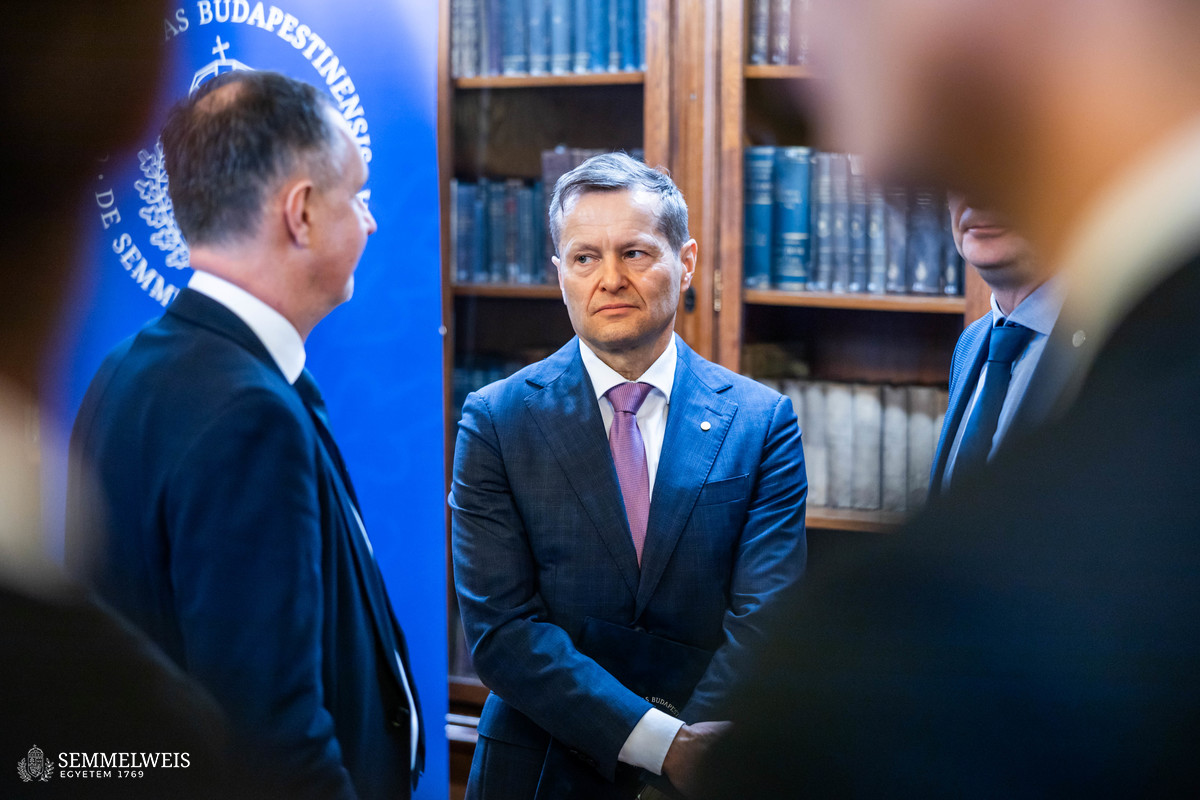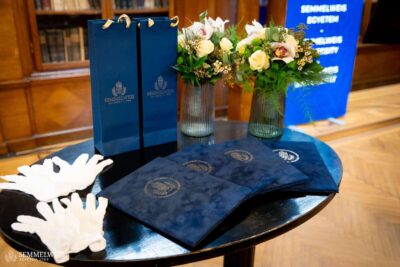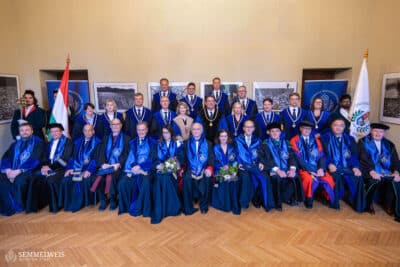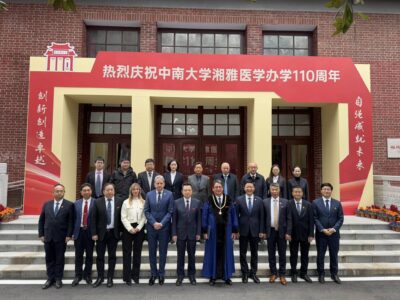At the ceremony, attended by the university’s leadership, members of the Senate, students, and the press, Rector Dr. Béla Merkely presented the 2024 Semmelweis Budapest Award to Dr. Ferenc Krausz. It was at its meeting in October last year that the Senate decided to bestow the prestigious award on the Nobel Prize-winning Hungarian physicist. In his welcome speech, Dr. Béla Merkely stressed that it was a great honor for him and made him very proud to be able to present the Semmelweis Budapest Award to a Hungarian Nobel Prize winner for the second time in two years.
Ferenc Krausz has always been driven to ask the right questions, find the answers, and put his discoveries at the service of humanity. For him, the most important thing about competition and winning, he said, is to be able to overcome yourself, to get the best out of yourself. He has a special ability to bring people together for an important cause, whether it is a scientific goal or helping those in need. – Dr. Béla Merkely
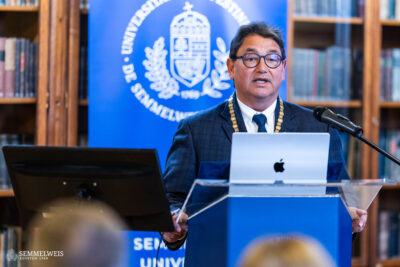 The rector added that Dr. Ferenc Krausz had donated the amount received for his Nobel Prize to Science4People, a charitable organization he had founded to support educational opportunities for children and young people affected by the war in Ukraine. He noted that Semmelweis University was participating in the medical and diagnostic research on molecular fingerprinting led by Dr. Ferenc Krausz, and that to this end, the Center for Molecular Fingerprinting and the university jointly established the John von Neumann Institute for Data Science on December 1, 2024. The ultimate goal of the research is to enable the diagnosis of well-known chronic diseases of civilization at an early stage by a simple blood test.
The rector added that Dr. Ferenc Krausz had donated the amount received for his Nobel Prize to Science4People, a charitable organization he had founded to support educational opportunities for children and young people affected by the war in Ukraine. He noted that Semmelweis University was participating in the medical and diagnostic research on molecular fingerprinting led by Dr. Ferenc Krausz, and that to this end, the Center for Molecular Fingerprinting and the university jointly established the John von Neumann Institute for Data Science on December 1, 2024. The ultimate goal of the research is to enable the diagnosis of well-known chronic diseases of civilization at an early stage by a simple blood test.
As Dr. Péter Ferdinandy, Vice-Rector for Science and Innovations, said about the awardee in his laudatory address, Dr. Ferenc Krausz is a Nobel and Wolf Prize-winning physicist, Scientific Director of CMF, Director of the Department Attosecond and High-field Physics of the Max Planck Institute of Quantum Optics, Chair and Professor of Experimental Physics – Laser Physics at Ludwig Maximilian University of Munich (LMU).
Dr. Ferenc Krausz’s research team was the first to generate and measure attosecond light pulses and use them to map the motion of electrons within the atom, laying the foundations for the science of attosecond physics. In 2022, he was awarded the Wolf Prize in Physics, shared with two other researchers, for his pioneering contributions to ultrafast laser science and attosecond physics. In 2023, he shared the Nobel Prize in Physics with Pierre Agostini and Anne L’Huillier for experimental methods that generate attosecond pulses of light for the study of electron dynamics in matter.
Dr. Ferenc Krausz said that it was an extraordinary recognition and a great honor for him to receive the highest scientific award of the most prestigious medical university in Hungary and the region. In his English-language scientific talk entitled “Laser physics for shaping the future of medicine,” he stressed the urgent need to improve the efficiency of healthcare, as 17 million people under the age of 70 die from non-communicable diseases every year, a problem that disproportionately affects lower-income countries. He called for a shift from reactive to proactive healthcare as he believes that utilizing early detection methods can reduce costs and save lives. Dr. Ferenc Krausz called attention to the huge potential of laser physics, highlighting attosecond science, which enables real-time tracking of electron motion. This breakthrough has paved the way for the analysis of molecular changes in human blood using infrared spectroscopy.
By measuring the “molecular heartbeats” of blood components, this approach can provide a unique, personalized health fingerprint. AI-assisted pattern recognition could revolutionize diagnostics, allowing for early disease detection.
The use of laser physics for medical advancements could bridge healthcare disparities and enhance global well-being.
Dr. Ferenc Krausz and his colleagues investigated infrared molecular fingerprinting for the detection of common non-communicable diseases. Initially, the technique proved effective in characterizing various cancers. Expanding on this, the research team analyzed over 5,000 population samples and identified conditions such as dyslipidemia (abnormal blood fat levels), type 2 diabetes, and hypertension with high accuracy. Remarkably, it was able to identify healthy individuals with 90 percent efficiency, which is unprecedented in biomarker research. One of their key findings was that disease signals increase with progression. Longitudinal follow-ups using individuals’ own pre-disease data could increase detection sensitivity and thus disease detection, as confirmed by a pilot study. A large-scale longitudinal health study following 15,000 participants over a decade is underway to refine this approach. By integrating infrared spectroscopy, mass spectrometry, and AI-driven analysis, the initiative aims to develop cost-effective, universal screening for non-communicable diseases, including cancer and cardiovascular conditions.
Following the presentation, the audience had the opportunity to ask Dr. Ferenc Krausz scientific questions. The event closed with a performance of the first movement from Carl Philipp Emanuel Bach’s Harp Sonata in G major by Barbara Kriesch, a member of the Medic Orchestra.
Recognizing top scientists
In 2009, Semmelweis University founded an international prize called Semmelweis Budapest Award. This is the university’s most prestigious international scientific recognition. The award is given to a globally recognized, cutting-edge scientist, active in biomedical research, whose achievements are worthy of the spirit of the university’s namesake, and who has made a significant contribution to the discovery of new ways of understanding the natural sciences and ultimately to the benefit of humanity.
Dr. Balázs Csizmadia
Photos by Bálint Barta – Semmelweis University
